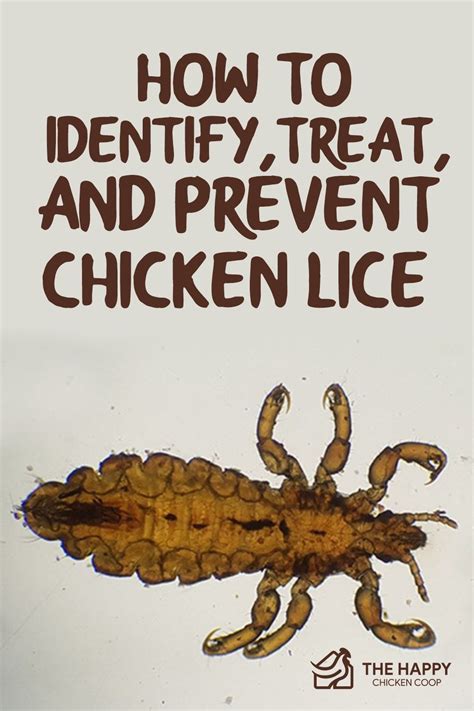How to Prevent Chicken Lice: A Comprehensive Guide
Chicken lice are a common poultry pest that can cause significant discomfort and even health problems for your flock. While completely eliminating lice is nearly impossible, implementing preventative measures and prompt treatment significantly reduces infestations and keeps your chickens healthy and happy. This guide will equip you with the knowledge and strategies to effectively prevent chicken lice.
Understanding Chicken Lice
Before diving into prevention, let's understand our enemy. Chicken lice are tiny parasites that feed on the blood and feathers of chickens. There are different types, but they all cause similar problems:
- Irritation and Stress: Constant itching leads to stress, impacting egg production and overall bird health.
- Feather Damage: Lice feed on feathers, leading to dull, ragged plumage and potential skin damage.
- Anemia: Heavy infestations can cause anemia, particularly in young chicks.
- Secondary Infections: Scratching can break the skin, leading to secondary bacterial or fungal infections.
Preventative Measures: Your First Line of Defense
Preventing a chicken lice infestation is far easier than treating one. Here's a multi-pronged approach to keeping your coop lice-free:
1. Maintain a Clean Coop
Hygiene is paramount. Lice thrive in dirty, cluttered environments. Regularly clean your coop, removing droppings, spilled feed, and old bedding.
- Frequency: Aim for a thorough cleaning at least once a month, and more frequently if needed.
- Disinfection: Use a poultry-safe disinfectant to kill any lingering lice eggs (nits).
- Bedding: Use fresh, dry bedding and replace it regularly. Avoid using materials that retain moisture.
2. Regular Inspections
Early detection is key. Regularly inspect your chickens for signs of lice:
- Check for restlessness: Are your chickens excessively scratching or pecking at their feathers?
- Examine feathers: Look for dull, damaged feathers and any visible lice or nits.
- Inspect skin: Gently part the feathers to check for irritation or skin lesions.
3. Quarantine New Birds
Always quarantine new chickens. Before introducing new birds to your flock, isolate them for at least two weeks to observe for any signs of lice or other parasites. This prevents the spread of infestations.
4. Natural Predators
Consider beneficial insects. Some insects, such as certain species of beetles, naturally prey on lice. Researching and potentially introducing these beneficial insects into your coop's environment (while carefully considering the ecological impact) may contribute to natural lice control.
5. Diatomaceous Earth (DE)
Diatomaceous earth (food grade) is a natural, non-toxic powder that can be used as a preventative measure. Sprinkle it lightly in the coop and around the birds' roosting areas. The fine particles dehydrate the lice, killing them. Always use food-grade DE.
When Prevention Fails: Treatment Options
Even with preventative measures, lice infestations can still occur. If you suspect an infestation, consult your veterinarian for appropriate treatment options. They can recommend effective and safe methods for your flock.
Remember: Always follow the instructions carefully when using any lice treatment product. Never use products intended for other animals on your chickens.
Conclusion: Proactive Poultry Care
Preventing chicken lice requires a proactive and consistent approach. By implementing these preventative measures and maintaining a clean and healthy coop, you can significantly reduce the risk of infestations and keep your chickens thriving. Early detection and prompt treatment are crucial for managing any outbreaks. Remember to always consult with a veterinarian for any concerns about your flock's health.
